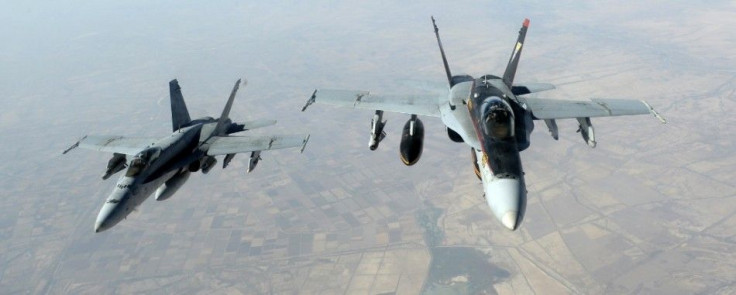Canada Aircraft Mission Against ISIS to Hold Base in Kuwait

Canada's CF-18 fighter jets meant to add more airpower to the mission to quash the blood-hungry ISIS extremists will be based in Kuwait. This, as Canada still has yet to draw up a detailed and concrete plan on how to go about its participation in the combat mission.
Reports on Thursday said Canada has entered with Kuwait a status of forces agreement that will allow Canada's CF-18 jet fighters, two CP-140 Auroras and a C-150 Polaris as well as support crews be hosted in the emirate nation. A Canadian military supply hub already exists in Kuwait.
The announcement of the location of Canada's force came after Canadian lawmakers on Tuesday night voted 157-134 to approve the country's joining the U.S.-led airstrikes against ISIS. Authorities, however, clarified the aircraft will come in still at least three weeks from now. It will only be around that time that Canada will conduct its first airstrike against ISIS targets.
At present, reconnaissance teams in Kuwait are currently checking out the installation. They are expected to update the government for the needed infrastructure and weaponry of the combat mission.
General Tom Lawson, Canada's Chief of the Defence Staff, is scheduled to go to Washington next week to attend a series of meetings of coalition military commanders. Those meetings are expected to produce a "follow-up ground campaign that will push ISIS fighters out of the territory they have captured in northern Iraq," the Globe and Mail said. The meeting also hope to determine if Canada has a say on their targets and how they intend to bomb them.
Prior to Tuesday's voting, Prime Minister Stephen Harper said Canada's participation into the combat mission will only be good for six months, or until early April 2015. But observers believe otherwise.
Roland Paris, director of the Centre for International Policy Studies at the University of Ottawa, he doubts Canada will be able to commit on that time frame. While Canada does have a right to "remove its combat forces at any time, in practice, once you're in, it can be politically difficult to withdraw. And we're in," he told Globe and Mail.
He said the airstrike combat mission will go on for years until a ground force capable of expelling the ISIS from where it is entrenched is created. The U.S.-led coalition is participated in by over 60 countries.
Read more:
Canada Officially Goes to War vs ISIS, House of Commons Greenlights Airstrikes
80 Canadians Under Police Radar, Suspected ISIS Fighters





















